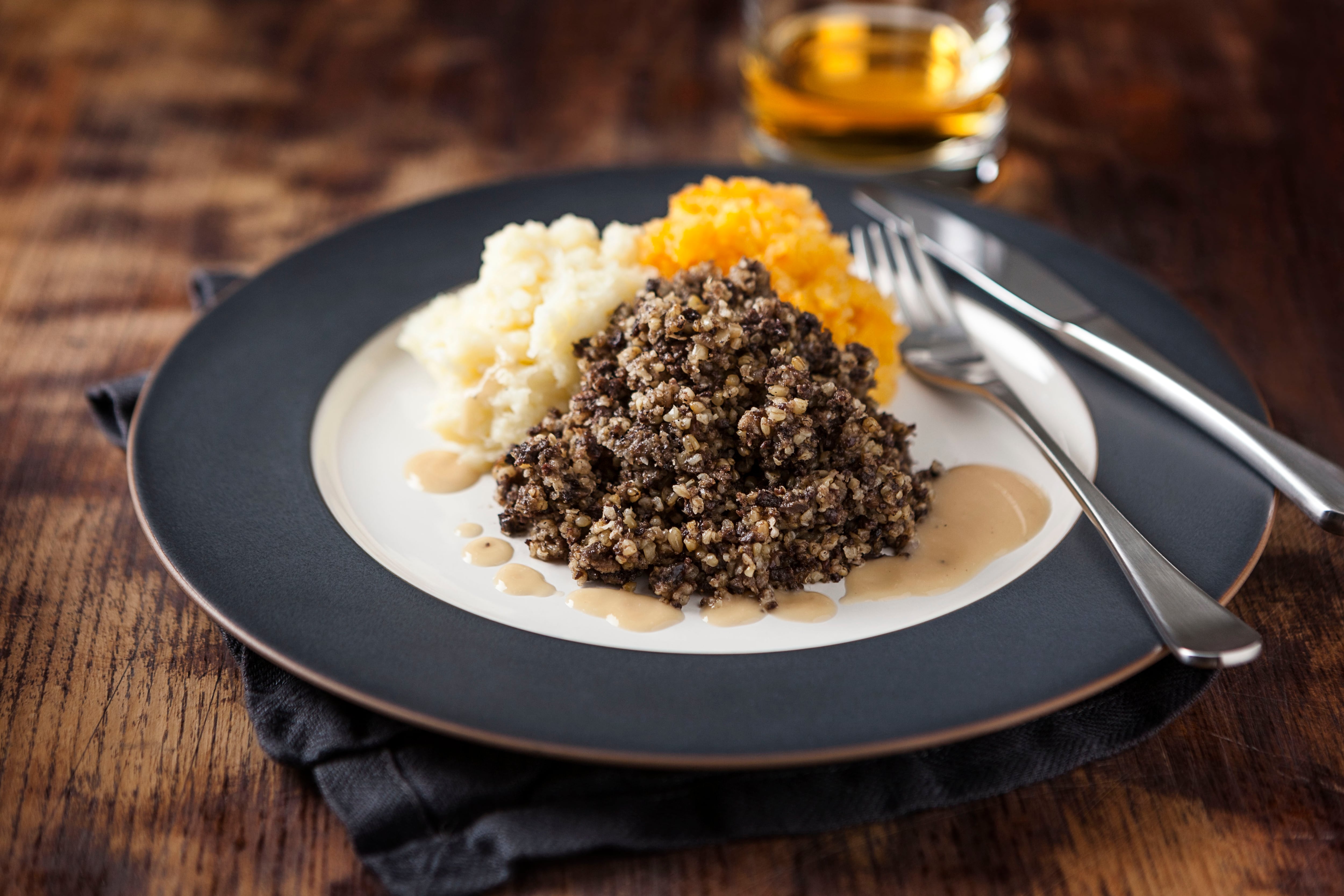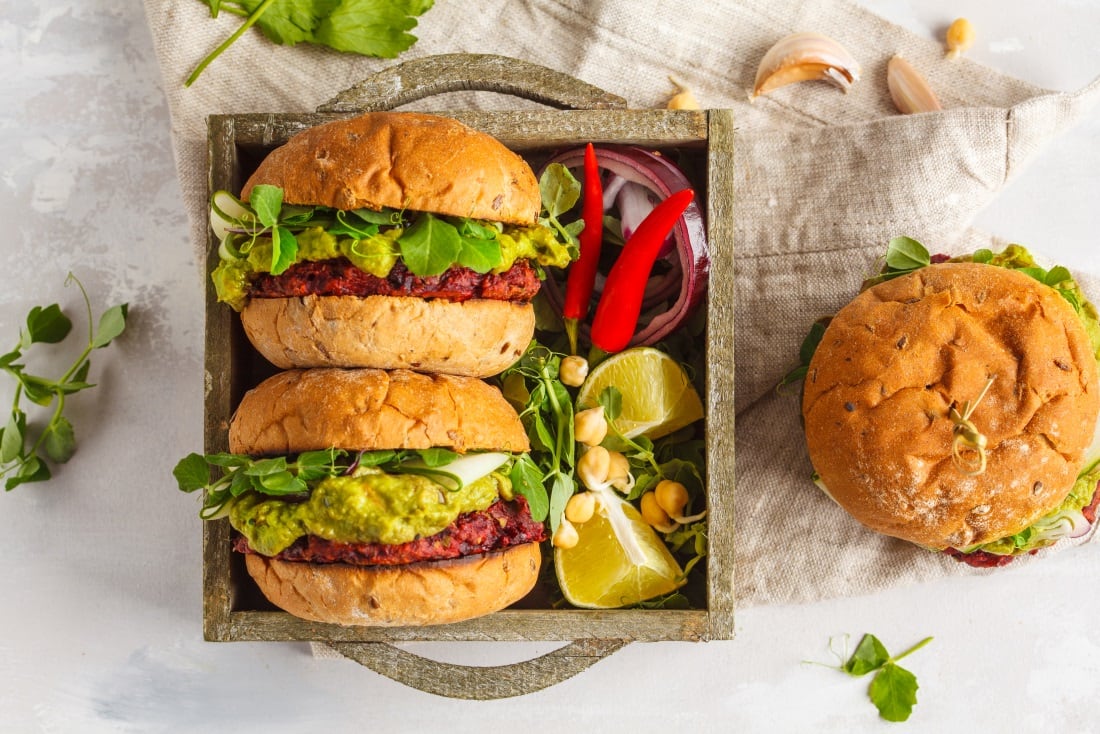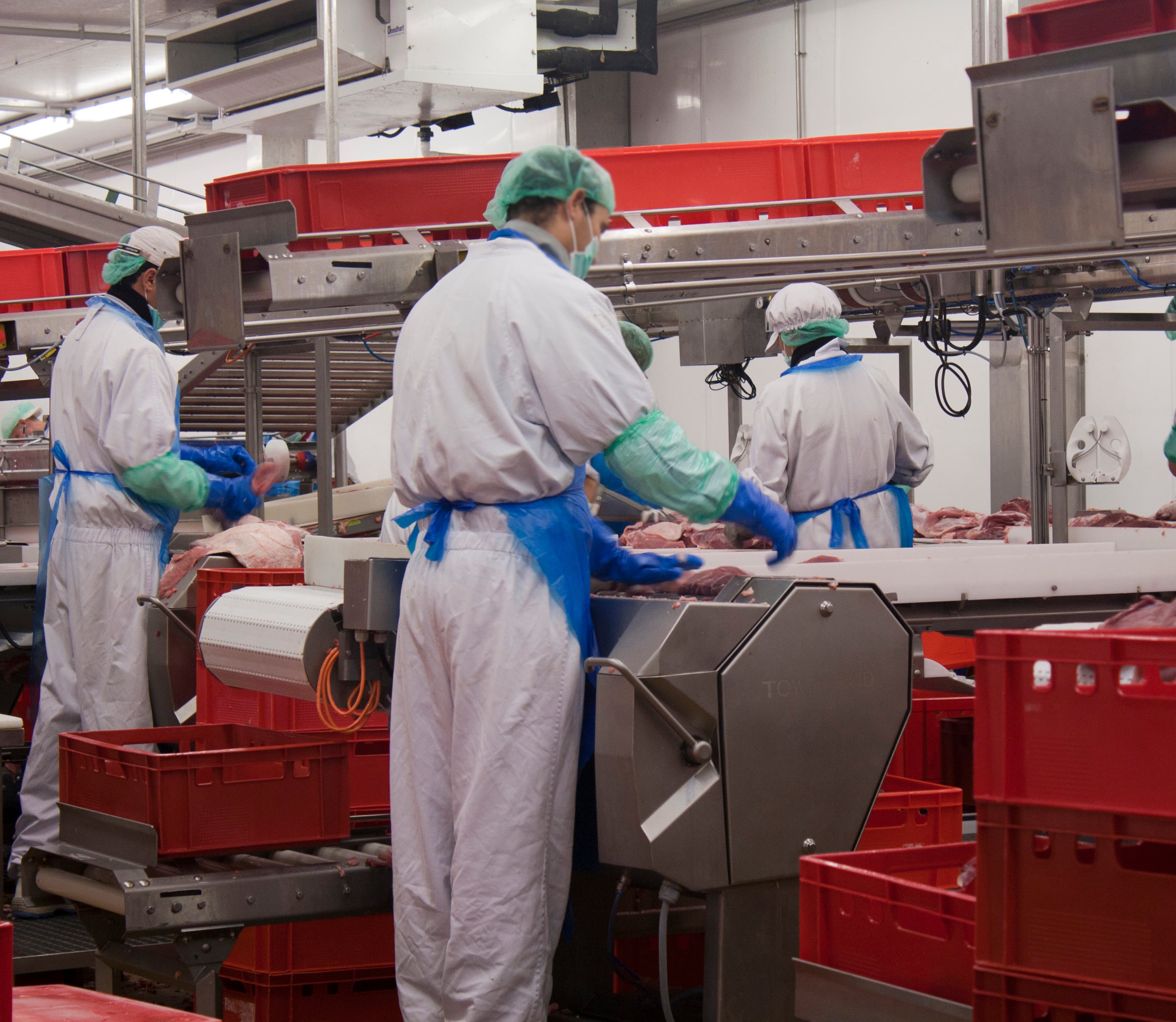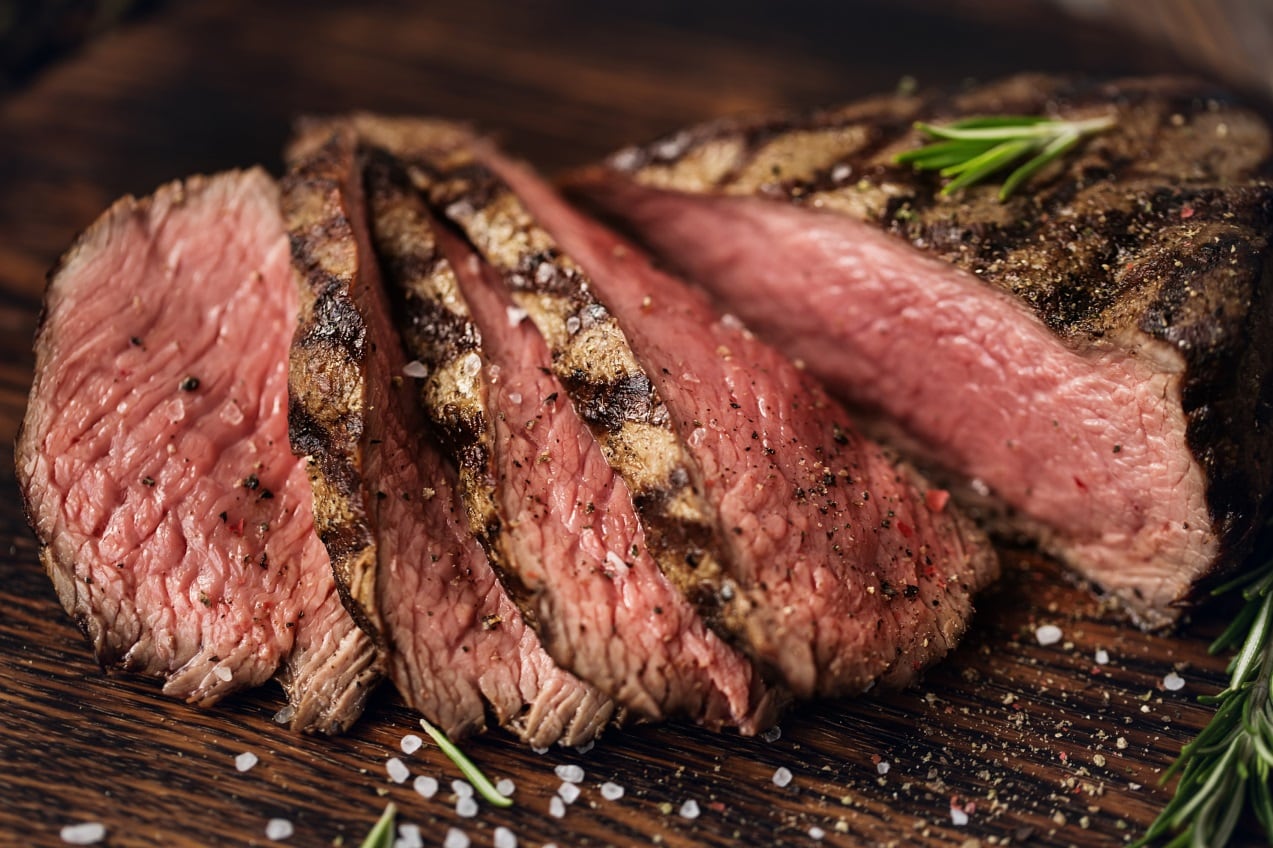The third round of trade deal negotiations between the UK and US began last week, with Truss calling for the repeal of the long-standing US bans on lamb and haggis.
Haggis, Scotland’s national dish that provokes love and curiosity in equal measure, has been banned from the US since 1971 as its food standards agency prohibits sheep lungs -- one of the key ingredients of haggis which helps give its distinct crumbly texture -- in products.
British lamb and beef were disqualified from the US after the outbreak of BSE in the late 1990s. While the US has recently reopened the market to British beef, creating £66 million worth of export opportunities for British farmers over the next five years, according to the official estimates, lamb remains off-limits.
The Agriculture and Horticulture Development Board estimates that securing access to the US for UK lamb would be worth £37 million over the first five years. The UK’s National Farmers Union says it would welcome the opportunity to sell more lamb but adds it would ultimately represent a “relatively small opportunity in the grand scale of things”.
A lifting of the haggis ban would be even smaller fry. But James Macsween, managing director of Scotland’s largest haggis maker Macsween, said hitting America would nevertheless be “a big deal for Scotland and for Scotland plc.” He estimates there are up to 25 million Scottish Americans. “If only 10% of those wanted to eat haggis it would still be another two and half million consumers.”
Traditionally eaten by peasants who used every part of the sheep to make the most of scarce resources, a savoury pudding of sheep's pluck (heart, liver and lungs) minced with onion, oatmeal, suet, spices, salt and stock, packed into a sheep’s stomach and boiled may not sound too appetising. But haggis lovers insist it tastes much better than it sounds, with a coarse, oaty texture and a warming peppery flavour.
Macsween believes a product steeped in history could potentially fly the flag for Scottish provenance in the US and attract new cohorts of consumers thanks to its connection with en vogue buzzwords such as authenticity, transparency and nose to tail eating.
"Scotland has a great reputation for fantastic food and drink,” he said. “We have the credentials to punch well above our weight. We've got fantastic environments, clean seas, fantastically lush grass and we rear some of the best lamb and beef in the world.”
With those sorts of base elements, you're going to make "really tasty food", he contends. “There's always a huge demand when tourists come here to eat our wonderful food. There's definitely a pool for exporting food to the United States and we already do a great job with whisky, smoked salmon and biscuits. Even our cheese is also starting to gain traction in the states.”
Haggis is also well placed to capitalise on its sustainably credentials. "It’s using the bits of the carcass that aren't typically used. That’s is really important and makes haggis a very sustainable product.”
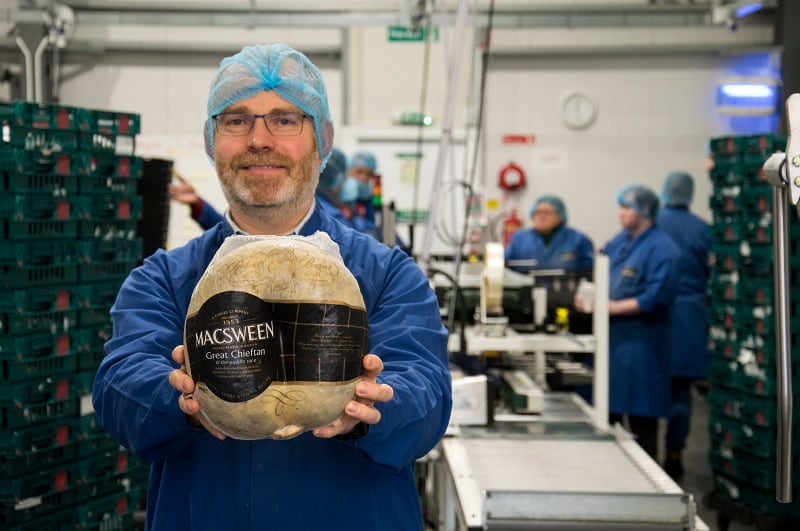
Haggis and Burns Night
“I'd love to sell haggis to the Americans,” added Malcolm Allan, Director of Falkirk-based family butcher Gordon Allan. However, he says getting Americans to eat it all year round is a challenge for a product that is – similarly to turkey and Christmas – inextricably linked with one occasion: Burns Night, that annual celebration in January of Scotland’s favourite son Robert Burns, who famously helped popularise the dish in his poem ‘Address To A Haggis’.
Allen said of the US market "there's business there but it's a bit of a novelty."
Macsween already exports to Canada where regulations were relaxed in 2015, and it launched a vegetarian haggis in the US in January this year. But its boss admits that only a minority of North American customers eat it all year round. "It's still all about Robert Burns day.”
However, he’s encouraged by the trajectory of the UK haggis market which has successfully grown over the last 20 years. After shutting its family butcher shop in Edinburgh in 1996 Macsween opened the world’s first dedicated haggis factory in the city. It now supplies to UK supermarkets Tesco, Sainsbury’s, Morrisons, Asda, Coop, Waitrose and M&S.
"In the UK we now eat haggis every week,” he said. "There's far more haggis being consumed now. It's a very affordable, satisfying and fulfilling dish.”
The US/UK trade talks: it’s complicated
Concerning the trade talks, Macsween added: “It's a slow process but I don't believe there's any technical reason for them not accepting our product.” The company’s Canadian haggis was reformulated to remove sheep’s lung, for example.
The US has said a UK trade deal is “unlikely” before the US presidential election in November. Any subsequent change in US administration is likely to extend the delay.
Agricultural standards are proving are bigger rub, however. The NFU, for example, has said it is imperative that a future trade deal does not allow the imports of food produced to lower standards than those required of British farmers. “UK our meat standards are impeccable, so it is important that it's a fair deal and we get the same quality in return. I think that's paramount,” added Macsween.
Nick Allen, CEO of the British Meat Processors Association, told FoodNavigator he was in was no doubt the US would be a massive opportunity for UK's meat industry. But he too said that protecting the domestic market was ultimately more important.
Much published issues such as chlorinated chicken and beef carcasses washed in lactic acid “all need to be unravelled”, he said. "I think it's more important that the standards are recognised otherwise our producers are going to be at quite a disadvantage… The main obstacle will be what are the Americans going to ask for in return."
Quality Meat Scotland (QMS) added that the trade talks represent a “clear opportunity” for the industry. Stuart Ashworth, Director of Economics Services, said: “QMS welcomes the opportunity within the UK-US trade talks to open the US market to all meats including Scotch Beef PGI and Scotch Lamb PGI which are globally renowned for their quality and taste.
“Currently the US imports a significant volume of sheepmeat from New Zealand and Australia. With a large Scottish diaspora in the USA, a clear opportunity exists to build a demand for Scotch Lamb and sheepmeat products.”


